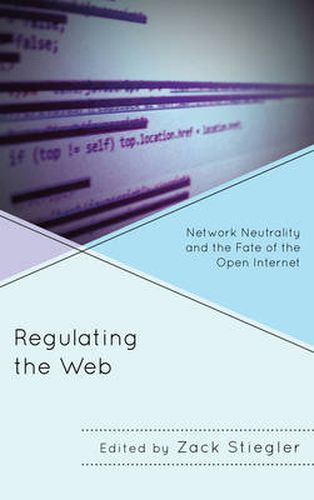Readings Newsletter
Become a Readings Member to make your shopping experience even easier.
Sign in or sign up for free!
You’re not far away from qualifying for FREE standard shipping within Australia
You’ve qualified for FREE standard shipping within Australia
The cart is loading…






Since its popularization in the mid 1990s, the Internet has impacted nearly every aspect of our cultural and personal lives. Over the course of two decades, the Internet remained an unregulated medium whose characteristic openness allowed numerous applications, services, and websites to flourish. By 2005, Internet Service Providers began to explore alternative methods of network management that would permit them to discriminate the quality and speed of access to online content as they saw fit. In response, the Federal Communications Commission sought to enshrine net neutrality in regulatory policy as a means of preserving the Internet’s open, nondiscriminatory characteristics. Although the FCC established a net neutrality policy in 2010, debate continues as to who ultimately should have authority to shape and maintain the Internet’s structure. Regulating the Web brings together a diverse collection of scholars who examine the net neutrality policy and surrounding debates from a variety of perspectives. In doing so, the book contributes to the ongoing discourse about net neutrality in the hopes that we may continue to work toward preserving a truly open Internet structure in the United States.
$9.00 standard shipping within Australia
FREE standard shipping within Australia for orders over $100.00
Express & International shipping calculated at checkout
Since its popularization in the mid 1990s, the Internet has impacted nearly every aspect of our cultural and personal lives. Over the course of two decades, the Internet remained an unregulated medium whose characteristic openness allowed numerous applications, services, and websites to flourish. By 2005, Internet Service Providers began to explore alternative methods of network management that would permit them to discriminate the quality and speed of access to online content as they saw fit. In response, the Federal Communications Commission sought to enshrine net neutrality in regulatory policy as a means of preserving the Internet’s open, nondiscriminatory characteristics. Although the FCC established a net neutrality policy in 2010, debate continues as to who ultimately should have authority to shape and maintain the Internet’s structure. Regulating the Web brings together a diverse collection of scholars who examine the net neutrality policy and surrounding debates from a variety of perspectives. In doing so, the book contributes to the ongoing discourse about net neutrality in the hopes that we may continue to work toward preserving a truly open Internet structure in the United States.